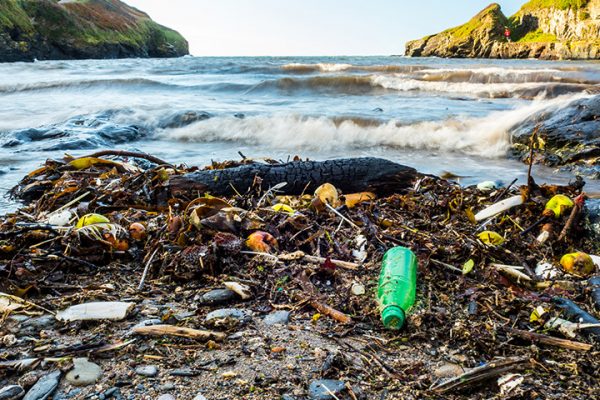
The Health Impacts of Pollution Control
June 29, 2018 7:53 pmThe Health Impacts of Pollution Control
In the U.S. and all over the world, air, water, and soil pollution have severely deteriorated the overall quality of human health. Negative health impacts on the human body start from the air pollution we inhale to the water we drink and the soil we grow our crops in. For generations, even prior to the widening attention to pollution control, humans have suffered from the repercussions of an unhealthy environment.

The Ongoing Fight for Clean Air
Prior to the Industrial Revolution, wood burning in stoves and fires were some of the largest sources of air pollution. However, traces of air pollution were discovered in mummified tissue found in ancient remains from Great Britain, all the way to Peru and Egypt. The negative effects of pollution trace all the way back to the origins of human civilization.
Once the Romans began to make use of metals, air streams became polluted by metallic clouds of smoke that plumed through. The Emperor Justinian was perhaps the first to clarify the importance of clean air in 535 A.D. He wrote in his proclamation, “By the law of nature these things are common to mankind—the air, running water, the sea”. The concern for the impact of pollution and the awareness of pollution control is not a recent occurrence, but rather dates back hundreds of years.
History of Water Pollution Control
Although pollution has been an issue since the Middle Ages, following World War II, water pollution changed dramatically as manufacturing processes began using more synthetic materials such as plastics, and agriculture took to using inorganic pesticides like dichlorodiphenyl-trichloroethane or DDT. These chemicals and materials are not only toxic to consume, but they accumulate in the environment and are not biodegradable.
This has resulted in an increased rate of cancer and birth defects among other health problems.
Waterborne diseases can also be contracted by drinking contaminated or dirty water. Polluted water can contain several types of diseases such as:
- Cholera
- Typhoid
- Dysentery
- Guinea Worm disease
Diseases stemming from polluted water contribute to about 3.4 million deaths each year. The health impacts of polluted and contaminated water led to an increase in water treatment regulations.
By 1948 in the U. S., it was clear laws needed to be enacted to protect human health from waterborne diseases. The Clean Water Act was enacted in 1948 by the U.S. EPA. Over the years, the Clean Water Act has been significantly upgraded to include the National Pollution Discharge Elimination System (NPDES). This act requires that all sources with outputs to local streams beyond property lines must comply with NPDES and business owners must apply for permits to discharge thus providing a line of defense against possible contaminants entering the environment.

Soil Pollution Also Impacts Health
While air and water pollution may appear to directly affect human health more, soil pollution cannot be ignored as it also contributes to serious negative health impacts. Soil pollution can occur in urban and rural areas. The causes include:
- Unintentional leaks or spills such as chemicals, fuels and loss of sewer system piping integrity
- Increase in household wastes
- Increased reliance on agricultural chemicals such as pesticides and fertilizer
- Industrial activity without proper industrial waste or chemical containment
- Deforestation that makes soil hostile to growth of fertile crops
According to a study by Cornell University, soil pollution accounts for pathogens and industrial chemicals passed to humans by ingesting foods grown in contaminated soil or from animal foods such as meats and dairy products. These diseases include:
- Salmonella
- E coli
- Trichinosis
This affects human health by compromising normal functions of human organs such as the liver, kidneys and in extreme degrees, the heart. The negative effects of toxins that are absorbed based on industrial chemicals have varying degrees of effect from sickness to permanent injury and death.
Air Pollution Abatement for Good Health
Today, business owners have a heightened awareness of their responsibility to reduce health impacts of pollution. Designing and implementing a program to effect environmental complications requires in-depth knowledge of environmental data and regulatory compliance. Additionally, resolving pollution problems with comprehensive, efficient pollution control equipment is an emerging and fast-growing domain.
Solutions to Environmental Pollutions
Human health and wellness, clean air, and regulatory compliance are all essential for industrial manufacturers to keep in mind while operating. For Ship & Shore Environmental, these items are the main priority. As an industry leader with a reputation for assisting clients with maintaining regulatory compliance and providing customized approaches to containing air, Ship & Shore works with clients all over the world providing solutions to address any environmental compliance issues.
Having experienced, knowledgeable personnel plays a significant role in companies being able to provide pollution abatement services, but also in maintaining a relationship that can meet the specific needs of a client. Ship & Shore’s trained engineers and technicians maintain a working knowledge of process, industry, and technology that result in the positive environmental and health impact on employees and the public. Ship & Shore environmental expertise and capabilities include:
- Remediation Solutions
- Groundwater and soil treatment technologies
- Soil Vapor Extraction (SVE)
- Air pollution control equipment
- Regenerative Thermal Oxidizer (RTO)
- Direct-Fired Thermal Oxidizer
- Flares
- Energy and heat recovery solutions
- Overall plant optimization services
- Process evaluation and assessment
Acting as an engineering partner, Ship & Shore allows industrial manufacturing companies to maximize the value of their investments with strategic planning, equipment installation, as well as upgrades and retrofits. With a professional team to assist, business owners are assured their environmental health initiatives advance on a cost-effective, timely basis.

Ship & Shore Contribution to Health
Companies are wanting to be more involved in how their business can be a positive contributor to their communities and being a good environmental steward is part of that process. Ensuring that environmental and health impacts are mitigated where and when they occur. With this goal in mind, Ship & Shore Environmental can craft the best solution for any business. They are not only a partner to their customers, but a partner with the planet to reduce pollution and its harmful health effects.
Categorised in: Air pollution, Climate Change, EPA, Industry news, News, News

